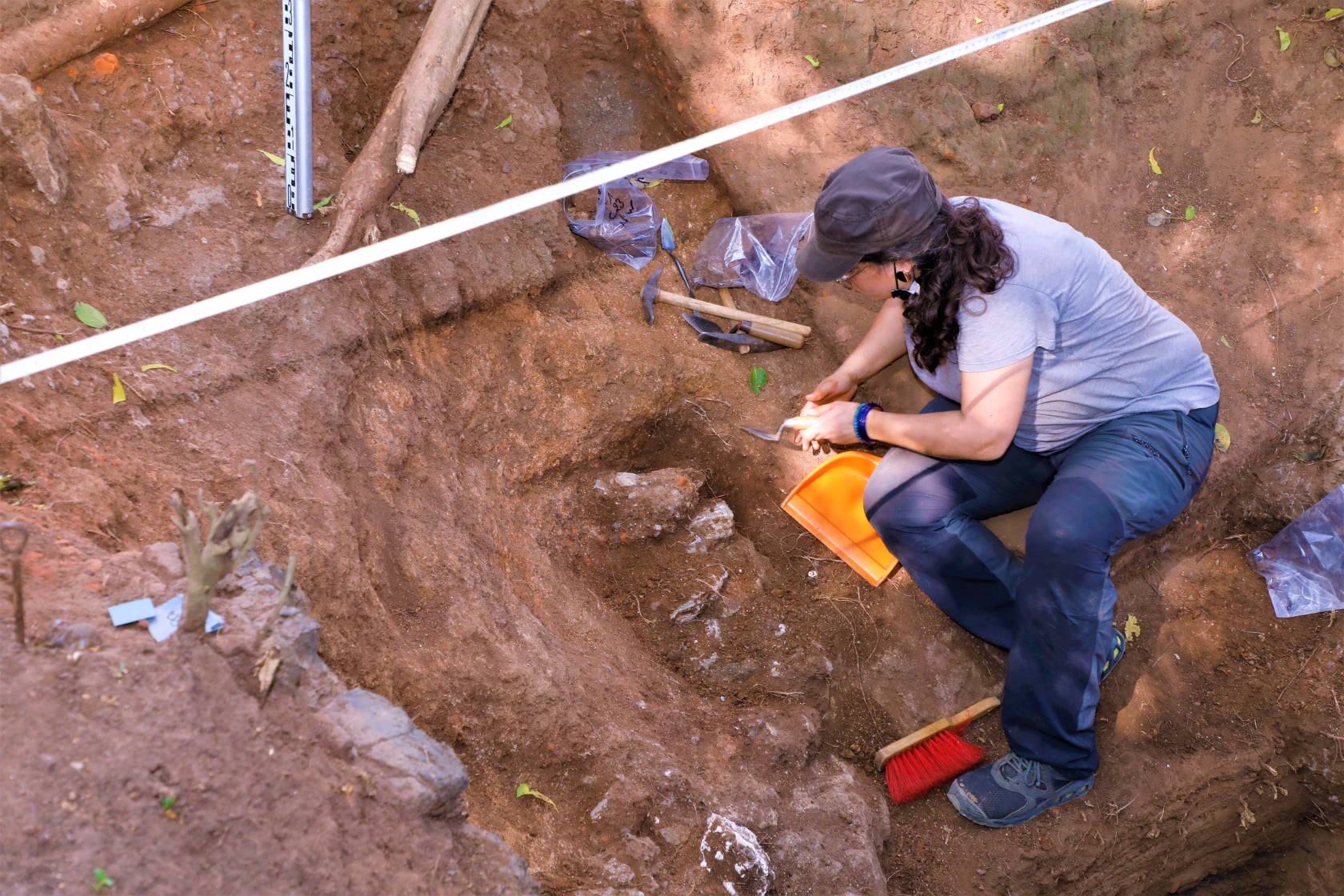Commencement of the Archaeological Survey of the Pabalugala Archaeological Reserve in collaboration with the Department of Archaeology, Sri Lanka by the Centre for Heritage Studies of the University of Kelaniya
- Social Sciences
- Posted On

The Archaeological Survey of the Giribawa Pabalugala Archaeological Reserve
, which is being implemented by the Research Associate of the Commission for Archaeology of Non-European Cultures (KAAK), Bonn, the Department of Archeology, Sri Lanka, the CNRS Laboratory AOROC, in collaboration with Centre for Heritage Studies of the University of Kelaniya, was commenced on 7th of February 2022.
Dr. Mangala Katugampola, Director, Centre for Heritage Studies of the University of Kelaniya, mentioned during the research that, two ovens which were believed to be used for the production of glass beads were initially identified and it is believed according to the geophysical surveys that nearly forty other similar ovens are scattered throughout the Giribawa Reserve.
The research project aims to validate the historical chronology of the Giribawa Pabalugala reserve, identify the technology used in bead production, and explore the connections made with the surrounding historical sites. Field related research will be conducted in several phases.
The project is supervised by Prof. Anura Manathunga, Director General, Department of Archeology, Sri Lanka along with the archaeologists from France and Germany, Dr. Ariane de Saxce of the Commission for Archaeology of Non-European Cultures (KAAK), Bonn and Dr. Joelle Rolland, and Roman Scholz. Dr. Mangala Katugampola, Director of the Centre for Heritage Studies, University of Kelaniya, Dr. Nimal Perera, former director in Excavations of the Department of Archaeology, Sampath Garusinghe, Janaka Kariyawasam and Asanka Buddhikasiri from the Department of Archaeology and retired excavation officer L.V.A de Mel, Lecturer Harindralal Namalgamuwa, University of Kelaniya, Lecturer Dr. Nuwan Abewardhana and Chanaka Adhipaththu from the University of Rajarata are involved in this research project.


